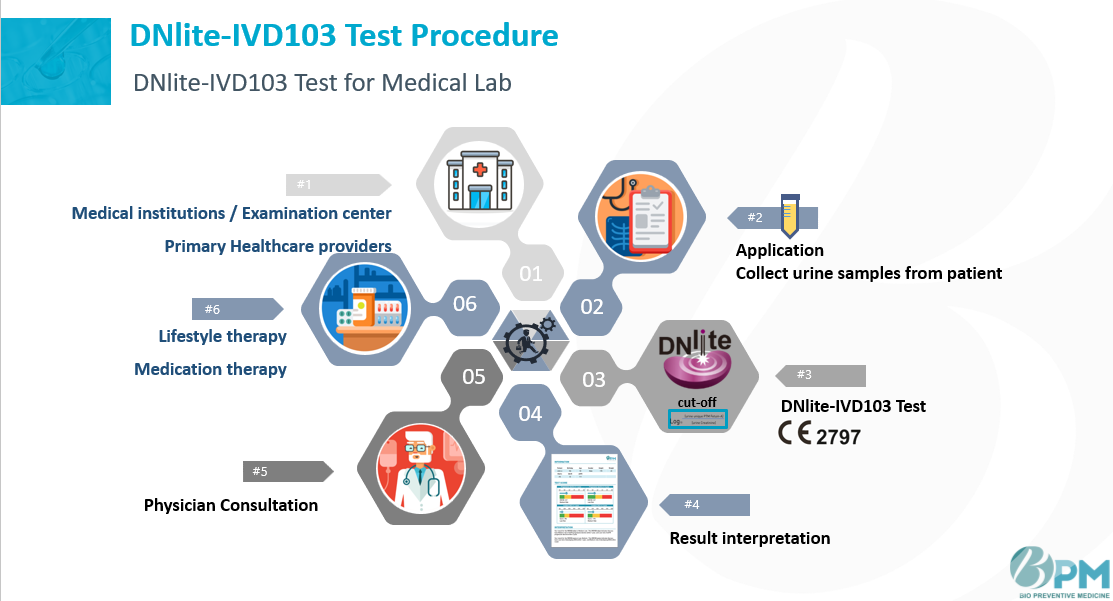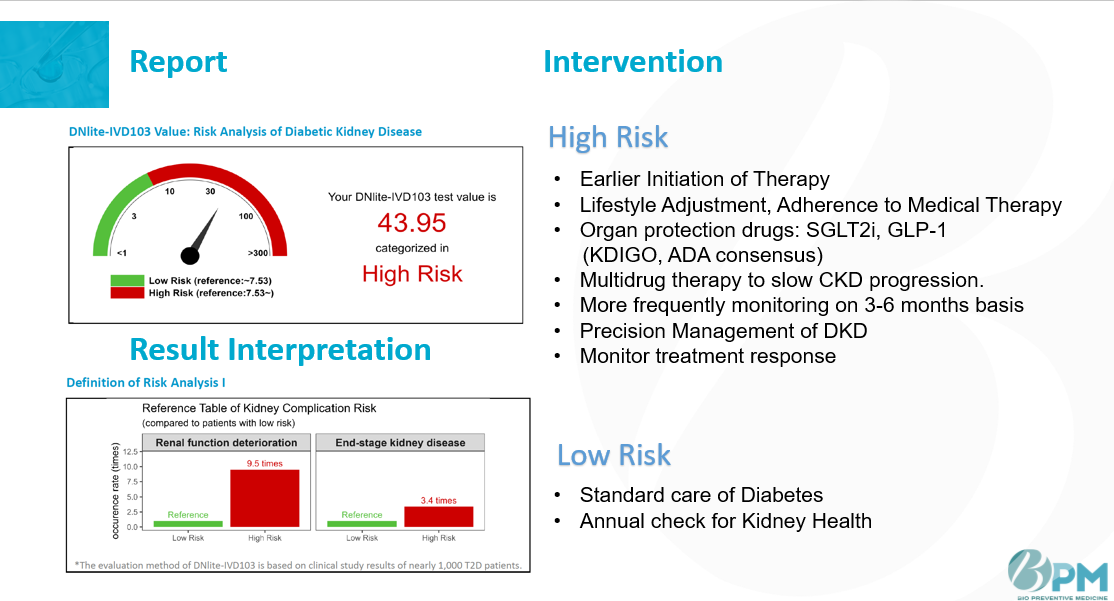Diabetic Kidney Disease (DKD) is Huge Healthcare Burden
50% of T2DM have some level of kidney disease.
There is high risk to become progressive decline of kidney function loss.
End stage kidney disease or kidney failure requires treatment by dialysis or kidney transplant.
DKD progression makes healthcare management complicated and costly.
Unmet Need:
A new DKD biomarker as better predictor to identify patients who will progress
Current diagnosis of Diabetic Kidney Disease (DKD) relies on test of Urine Albuminuria-to-Creatinine Ratio (UACR) and estimation of GFR (eGFR), but these cannot meet the required sensitivity and specificity. Furthermore, both UACR and eGFR cannot predict and identify DKD patients who will progress, it is crucial for DKD management.
Current Standard Unable to Predict Kidney Progression
.png)
- Many patients with Micro-Albuminuria revert to Normal Albuminuria
- Patients may also progress to kidney failure from Normal or Micro-Albuminuria

- Disease can progress years without apparent symptoms (progressive eGFR decline)
Our Solution: The DNlite-IVD103 Test

DNlite-IVD103: Precision Management in DKD
Early risk assessment enables early action for the right patients

Updated: 2025, Jan. BT